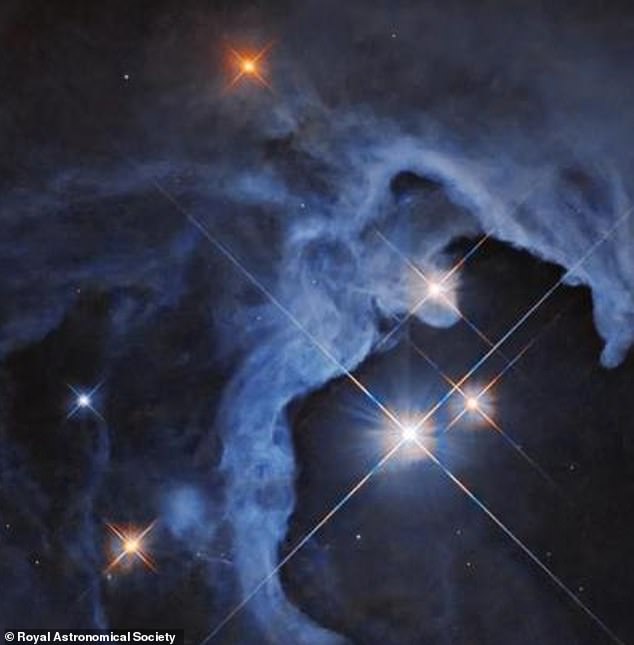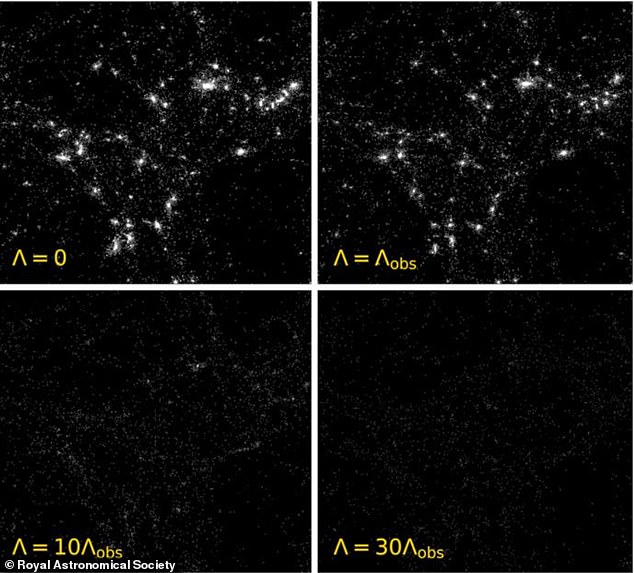Chances of aliens existing in our universe finally revealed by new ‘formula for life’ calculator
Researchers have calculated the chance of intelligent life existing in our universe right now and in the future.
They’ve developed a new ‘formula for life’ model they claim is the most comprehensive of its kind.
But the majority of people will likely be disappointed.
That’s because the new calculation put the chances of life in universes beyond our galaxy at 27 percent – much lower than the 65 percent of American adults who think there is extraterrestrial life on other planets.
The likelihood that intelligent life exists within our own galaxy is slightly lower, hovering at just 23 percent, researchers at the University of Edinburgh and the University of Genevieve in Switzerland reported.
The research suggested that the star formations and evolution of large-scale planets could quietly combine to ‘form the next generation of intelligent life.’
To uncover the mysteries of other lifeforms, the team created a theoretical model based on the Drake Equation that was developed in 1960.
The model calculates the universe’s expansion and has previously been used as a framework to research whether advanced civilizations exist in our galaxy.

The team said they did not use their calculations to determine the number of intelligent lifeforms, but instead estimated the likelihood that they exist.
This is due to dark energy which makes up more than two thirds of the universe and drives its expansion, causing galaxies and galaxy clusters to develop.
These clusters can join together to form stars and planets that could host alien life if they remain stable for billions of years.
The research suggested that the star formations and evolution of large-scale planets could quietly combine to ‘form the next generation of intelligent life.’
Lead researcher Dr Daniele Sorini, of Durham University’s Institute for Computational Cosmology, said: ‘Understanding dark energy and the impact on our Universe is one of the biggest challenges in cosmology and fundamental physics.
‘The parameters that govern our Universe, including the density of dark energy, could explain our own existence.’
The study, published in the journal Monthly Notices of the Royal Astronomical Society, also took into account that alien lifeforms that don’t currently exist could develop in the future, although it did not state how long that could take.
The researchers estimated the probability by calculating the amount of ordinary matter that combined to form stars across the history of the universe, dating back 13.8 billion years.
They then separated each star cluster by the amount of dark energy density that contributed to their formation.
The model predicted that the probability of intelligent life developing in universe’s outside our own hovers at 27 percent.
‘Surprisingly, we found that even a significantly higher dark energy density would still be compatible with life, suggesting we may not live in the most likely of universes,’ Dr Sorini said.
Currently, researchers can’t conclusively explain what dark energy is or how much exists in the universe, Dr Sorini told NBC6 News.
Professor Lucas Lombriser, at the University of Genevieve and co-author of the study, added: ‘It will be exciting to employ the model to explore the emergence of life across different universes and see whether some fundamental questions we ask ourselves about our own universe must be reinterpreted.’
Dr Sorini added: ‘I cannot give you a number or a percentage chance of finding intelligent life at this stage as the model is just one step in the process.

‘We should be able to give a more accurate figure in the future. We are not restricting on when life could emerge past, present or future,’ she continued.
‘It could be that many lifeforms could emerge much later in the life of the universe.’
The team’s findings are in contrast to past research that claimed the likelihood of other advanced technological civilizations existing was ‘astonishingly low.’
In 2016, researchers at the University of Rochester in New York also used the Drake Equation to ask if humans on Earth are the only technological species that has ever existed.
They reported that the odds of a civilization developing into a habitable planet is less than one in 10 billion trillion.
Yet, even by those statistics, Adam Frank, professor of physics and astronomy at the University of Rochester and co-author of the 2016 study said: ‘One chance in a trillion, implies that what has happened here on Earth with humanity has in fact happened about a 10 billion other times over cosmic history.’


